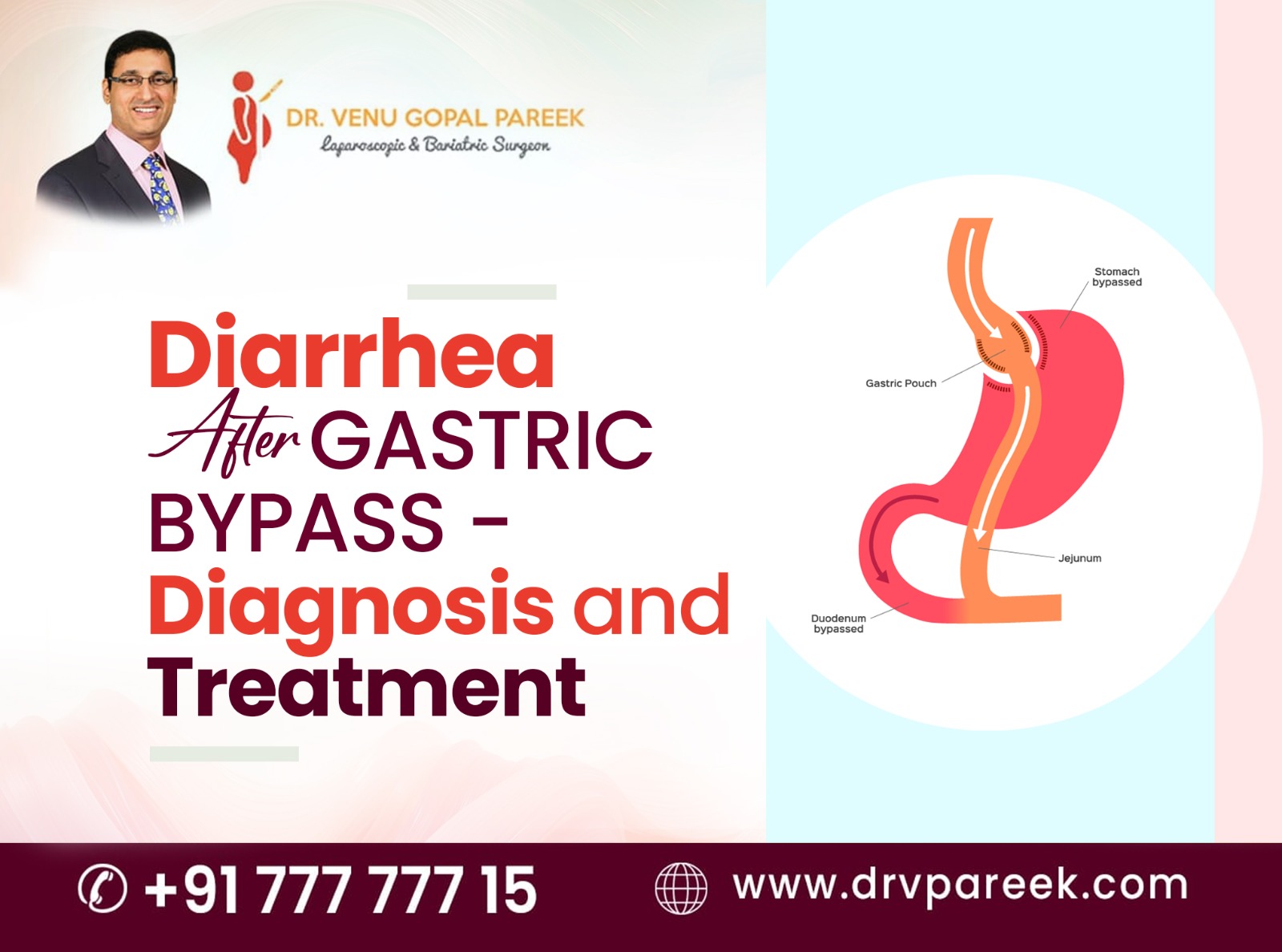
Diarrhoea After Gastric Bypass – Diagnosis and Treatment
Gastric bypass, also known as Roux-en-Y gastric bypass, is a type of bariatric surgery suggested for obese people to lose weight. The procedure involves dividing the stomach into a small upper pouch and a large lower pouch, and the small pouch is directly connected to the small intestine.
Bariatric surgery is a major surgical procedure where the whole anatomy of the stomach is rearranged in a way to absorb fewer proteins and minerals from food. This eventually helps with losing weight. Any major surgery has some side effects. Unfortunately, diarrhoea, malnutrition, bowel obstruction, vomiting, etc. are some of the most common side effects after gastric bypass .
After gastric bypass surgery,some people get diarrhoea. It is a common side effect that may last for several months; however, it can subside over time. Fortunately, following a few tips can help manage these unpleasant side effects. The following are a few reasons why diarrhoea occurs after gastric bypass surgery and how to treat it!
After gastric bypass surgery, why does diarrhoea occur?
There are different reasons why bariatric patients experience diarrhea after surgery. Here are the three main reasons why it happens.
Gastrointestinal dysfunction
The digestive tract might be adjusting to the changes made during the gastric sleeve surgery. Following surgery, patients need to follow a specific diet plan that is completely different from their previous regular diet. The fact is that they will be on a low diet, which leads to the production of low stomach acid.
Diarrhea is not only caused by high amounts of stomach acid; it can also be a result of insufficient stomach acid. This is why doctors often prescribe medications like OTC antacids or proton pump inhibitor drugs following surgery, which help control the level of stomach acid. It takes some time for our bodies to adjust to the new changes; they think that we take a regular diet for a while even after undergoing gastric bypass surgery. As a result of this surgery, the bowel movements become irregular.
Diet changes and altered anatomy of the stomach
As said above, after bariatric surgery, the size of the stomach reduces. As a result, the food you consume moves faster through the gastrointestinal (GI) tract — which includes both the stomach and small intestine. Naturally, the GI tract is built to digest food slowly over hours. But, due to the altered anatomy, transit time is shortened , which means food takes a shorter time to pass through the small intestine, mostly due to eating more fibre than usual. This may result in higher concentrations of digestive fluids, especially in the small intestine, which could cause diarrhea.
Dehydration
Post-surgery, food consumption is lower, which increases the concentration of digestive fluids. So to dilute the digestive fluids, one should drink more water. If you don’t drink enough water, it will be hard to dilute digestive juices secreted by the body, which may result in diarrhea and dehydration.
How do I manage diarrhoea after gastric bypass surgery?
Diarrhoea is common following gastric bypass surgery, but it will subside over time. However, if you have diarrhoea after bariatric surgery, here are some tips to manage it.
Drink more water—at least 2 litres of water daily—as part of your diet following gastric bypass surgery.
Consume more fibre—remember not to eat at once; divide for each meal/snack. Also, increase the quantity of fibre intake gradually.
Take medications like antacids or proton pump inhibitors as suggested by the doctor. Consult your doctor and ask for an increase in medication dosage if you are still not feeling relieved; many people find this to be helpful.
Be in touch with your surgeon and ask for the right balance in your diet. This works for most gastric bypass patients suffering from diarrhoea, but unfortunately, it may not work for some patients. From time to time, they may likely experience diarrhoea until they figure out the ideal post-bypass diet plan.
Diarrhea after gastric bypass surgery should not last longer than a week. If you have undergone bariatric surgery and have been experiencing diarrhea problems for more than a week, consult your surgeon as soon as possible. If you want an ideal post-gastric bypass diet plan that works for any patient, consult Dr. Venugopal Pareek, one of the best bariatric surgeons in Hyderabad.
He has nearly two decades of experience and has performed more than 550 successful bariatric surgeries in Hyderabad and 9000 laparoscopic surgeries.







